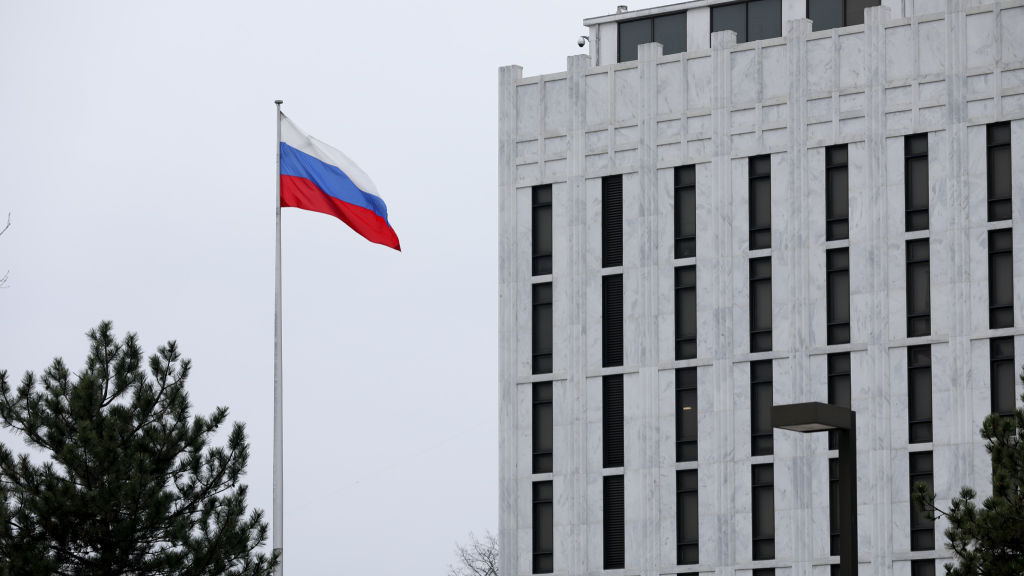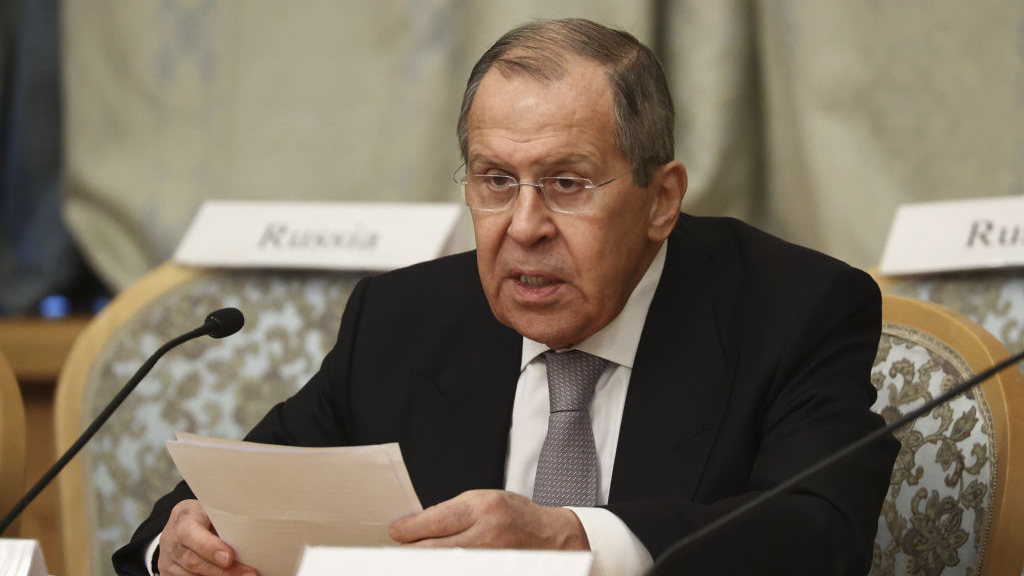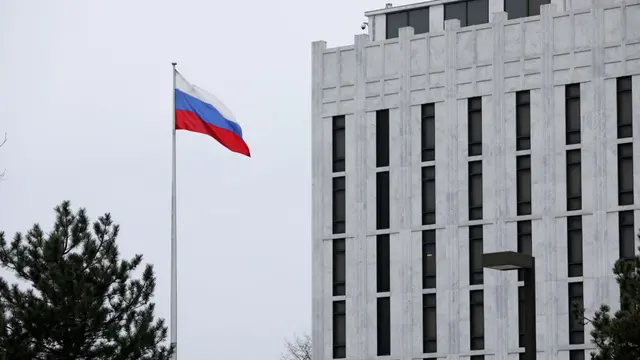
A view of the Russian embassy in Washington D.C., United States, March 17, 2021. /Getty
Editor's note: Andrew Korybko is a Moscow-based American political analyst. The article reflects the author's opinions and not necessarily the views of CGTN.
Russian-American relations have reached a dangerous nadir after Moscow summoned its ambassador to the U.S. for consultations following U.S. President Joe Biden's agreement in a recent interview that his Russian counterpart is a "killer."
This comes on the heels of the U.S. intelligence community's report that Moscow allegedly waged an influence operation during last year's elections. Earlier this week, leading Russian Senator Alexei Pushkov claimed that the U.S. aims to impose "a prolonged siege of 'Putin's Russia'" through "sanctions from hell," provoking hostilities in eastern Ukraine and NATO's buildup along his country's borders. Last month, Russian Deputy Foreign Minister Sergey Ryabkov also warned that Russia would pursue America's "active containment."
There's no doubt that this dangerous escalation is the result of America's reckless hybrid war aggression against Russia. Biden's latest comments were the last straw and Moscow had no choice but to summon its ambassador back to the Russian capital per standard diplomatic protocol during such scandals.
Nevertheless, Russian foreign ministry spokeswoman Maria Zakharova reaffirmed that her country is "interested in avoiding the irreversible degradation" of its ties with America, though of course the onus for this falls squarely on America's lap seeing as it's irresponsible for what's happened. After all, the U.S. political class has been irresponsibly provoking Russia since the 2016 presidential election campaign through a series of wild conspiracy theories.
The U.S.-led Western sanctions against Russia have expanded in recent years to encompass practically the entirety of bilateral relations. This was done in parallel with NATO's gradual buildup along Russia's western borders. Washington also blamed Moscow for attempting to assassinate former spy Sergey Skripal and opposition leader Alexei Navalny, charges that the Kremlin vehemently denied.
Russia is accused by America of carrying out war crimes in Syria too, which it also denies, as well as supposedly "invading" eastern Ukraine. It's little wonder that Russian-American ties have reached this new low.

Russia's Foreign Minister Sergei Lavrov speaks during a meeting on Afghan peace with the participation of China, the U.S., Pakistan, Afghan parties and Qatar as an honorary guest in Moscow, Russia, March 18, 2021. /Getty
The consequences of intensified rivalry between Russia and the U.S. would be destabilizing for the entire world. The former will always proudly defend its interests against the latter's unprovoked aggression in line with its rights under international law, but the countries caught between them such as those in Europe might indirectly suffer as a result.
It's therefore in everyone's interests that ties soon stabilize before sincere efforts are undertaken by both sides to rebuild them by focusing on areas of shared interest such as containing the COVID-19 pandemic, combating climate change, and facilitating a peaceful solution to the Afghan and Syrian conflicts. About those latter two, some interesting developments have occurred as of late.
Regarding the first-mentioned, U.S. Special Envoy to Afghanistan Zalmay Khalilzad attended another round of peace talks in Moscow on Thursday for the first time ever, thereby tacitly signaling his country's support for Russia's peace efforts.
On the topic of the second conflict, Russian Defense Minister Sergei Shoigu revealed in an interview published by a Kazakhstani news agency on Wednesday that his country actually has "very close contacts" with the U.S. in Syria "in the administration of the airspace, the implementation of measures in the air to combat terrorism." Although the fruits of such incipient coordination in Afghanistan and Syria have yet to be borne, they raise hopes that pragmatic heads on both sides will reach geopolitical compromises really soon.
Russia and the U.S. previously agreed to extend the New START nuclear pact at the very last minute early last month so it shows that the political will exists to cooperate whenever there's a shared interest in doing so. That's precisely what's needed more than ever before in order to prevent the further deterioration of ties beyond their already dangerous nadir.
Afghanistan, Syria, COVID-19 and climate change are the best possible starting points for this to happen. Bilateral trust must be slowly but surely rebuilt in order to preclude any further problems between them that could destabilize the world even more than their rivalry already has. It's up to America to reciprocate Russia's pragmatic outreaches and start repairing their relations.
(If you want to contribute and have specific expertise, please contact us at [email protected].)
 简体中文
简体中文

